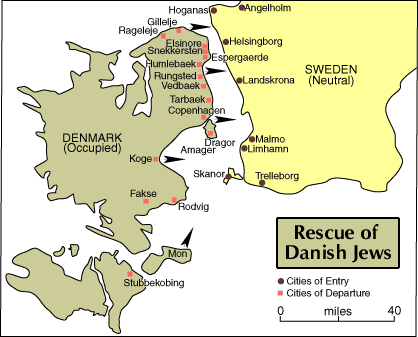![]()
Rescuers
Study the map below in order to answer the following questions.

![]()
Select the best possible answer for the following
question.
Click the submit button to check your answer.
![]()
For the following questions, choose all of the options that
apply
(Hint: there may be more than one!).
Click the submit button to check your answers.
![]()
Choose the best possible answer for each of the following
questions.
Click the submit button to check your answers.
4. Rescuers from Nazi terror risked public hangings,
deportation to concentration camps, and on-the-spot shootings.
|
It was a reign which, nearly half a century later, still challenges our understanding. Evil was rewarded and good acts were punished. Bullies were aggrandized and the meek trampled. In this mad world, most people lost their bearings. Fear disoriented them, and self-protection blinded them. A few, however, did not lose their way. A few took their direction from their own moral compass. -Eva Fogelman |
5. The profile above describes
|
Their lives (my parents) were saved by the gentile farmers in that town. There were some very righteous non-Jewish people who had the courage to speak up. Many, many of them...Many of them lost their lives...Sometimes not enough is written about those courageuous non-Jews. -Ernest Drücker |
|
|
| Victims | Perpetrators | Bystanders | Resisters | Rescuers | Liberators | Survivors | Children |
Produced by the Florida Center for Instructional Technology,
College of Education, University of South Florida © 2000.